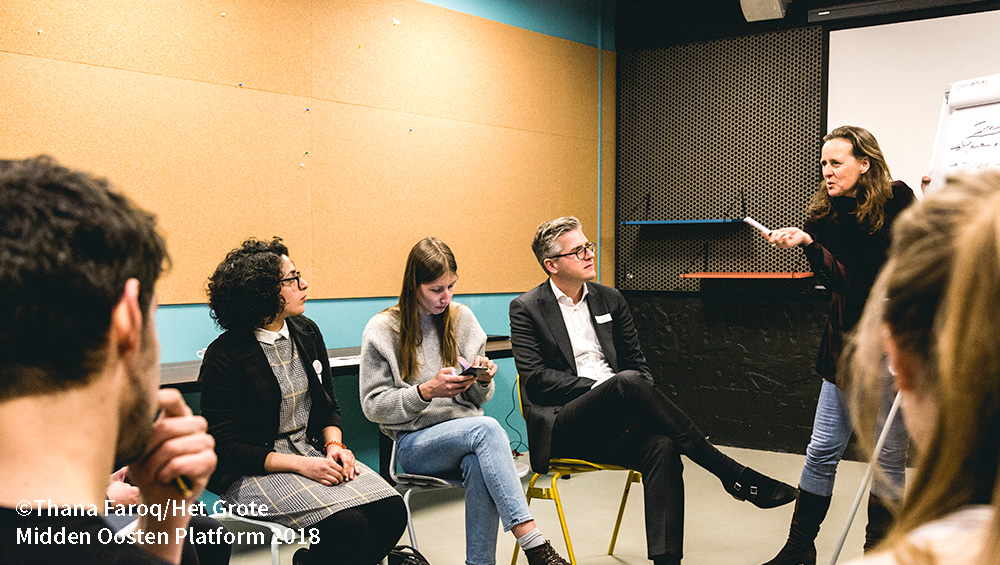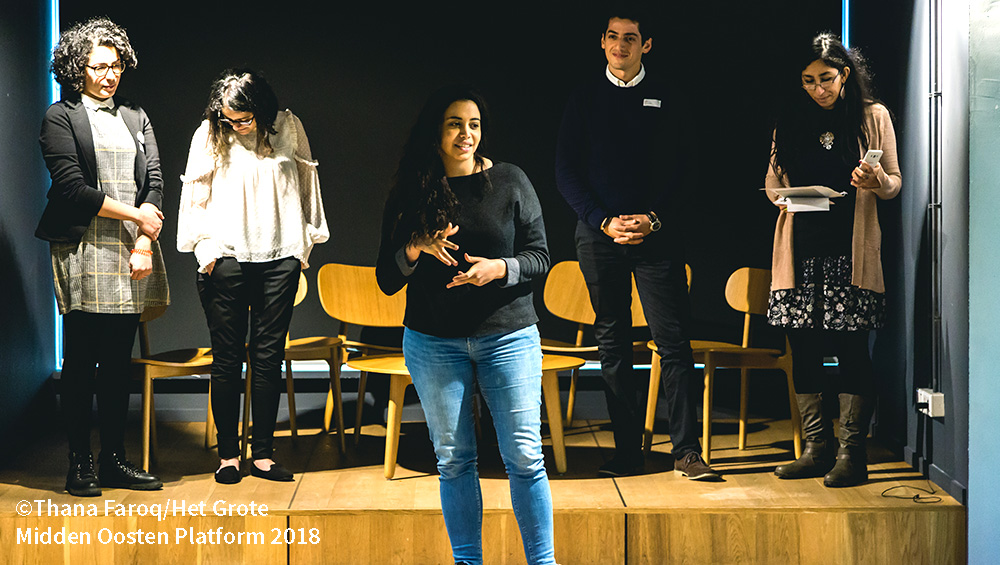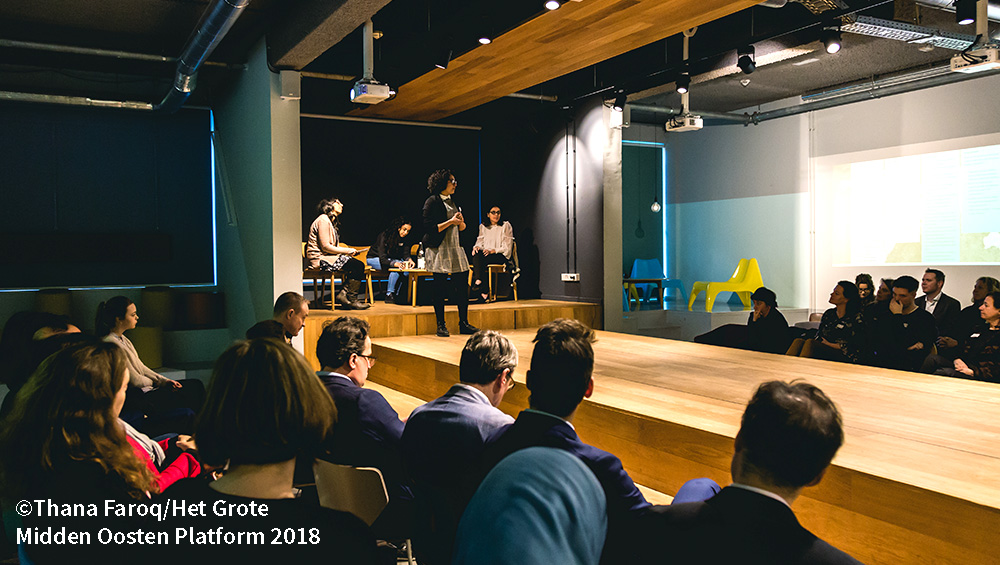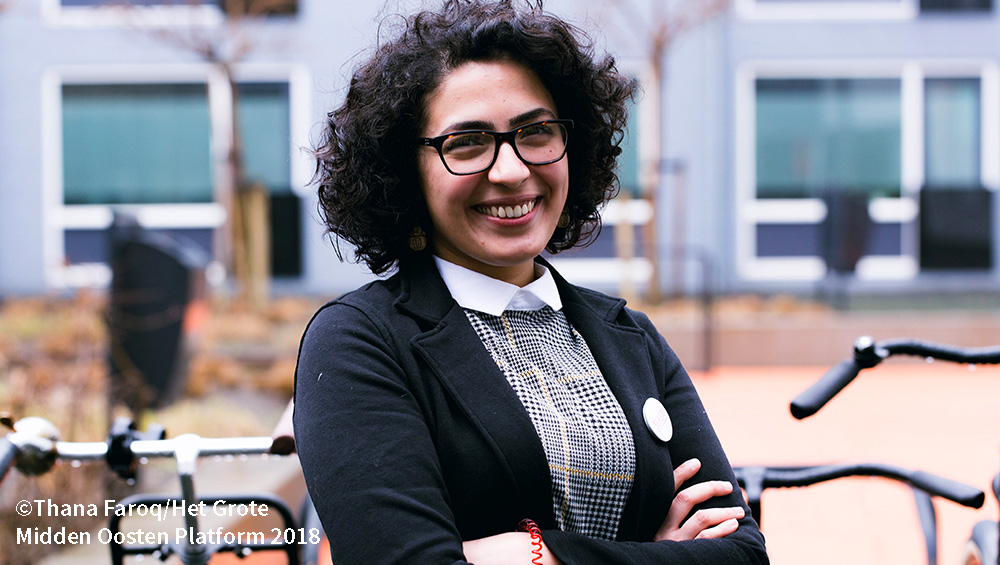In the framework of the new Dutch government’s agenda, which includes developing collaborative projects with other countries among its targets, the Great Middle East Platform (het Grote Midden Oosten Platform – GMOP) organized the conference: “Opportunities and Choices for Youth in the Middle East”. Four young participants from the Middle East and North Africa region (MENA) were invited by the interdisciplinary conference, which was held in The Hague on February 15. The four participants represented their countries, as well as their successful initiatives. The conference’s main aim was bringing the young generation of this region and their challenges to the focus of attention of the new Dutch government.
One of these young attendees was Noha Hussein, from SEKEMs Public Relations and Communications Team in Egypt. “I am very thankful to the Dutch SEKEM Friends as they offered me the participation in the conference,” says Noha. The SEKEM Friends Association of the Netherlands was the link between SEKEM and the GMOP. Besides, they invited Noha Hussein and sponsored all costs for the trip. “Although it was my first time in Europe, it felt like home, thanks to the support I found from Hendrik Jan Bakker as well as Dr. Bert de Graaf and his wife Tine de Graaf,” says Noha Hussein. “They are quite generous people, who unquestionably strive to help others. It’s obvious how they carry the SEKEM vision deep inside their hearts.”
SEKEM in focus as an Egyptian role model
During the conference, Noha had been involved in a working group. She represented SEKEM Initiative as a role model for sustainable development and international cooperation in Egypt. “I am convinced that SEKEM has solutions by which my home country can tackle many challenges,” Noha tells. “Especially when it comes to young people, SEKEM offers us the space to express our hidden talents and to develop. I have been hugely supported since I first joined SEKEM, in terms of development opportunities and learning something new in my daily working environment,” she recounts.

The Egyptian lady is deeply inspired by the SEKEM Vision, which was founded by Dr. Ibrahim Abouleish. “40 years ago, he could already foresee the current challenges confronting Egypt. That’s why I believe that conveying his vision, as well as emphasizing on the urge of educating people, empowering them, and supporting their individual development, is a part of my duty towards my country.”
Different perspectives, similar aspirations
In four groups, the participants worked on different questions from the audience. Within their answers, the different social and cultural issues of their countries were highlighted. Such issues that hinder young people from being active members of their societies, for instance: bureaucracy, defected education systems, or indecent working environments.

All participants revealed different notions. “That’s because we are coming from different countries that face different circumstances and challenges, even if we are located in the same region. This diversity was very helpful for realizing how we can promote real development,” says Noha. From Libya, Asma Khalifa, the trainer at “Young Peace-builders” project at “Tripoli Good”, a local NGO in Tripoli, attended the conference. Asma is also the co-founder of “Tamazight Women Movement”, a think/do tank that is working on gender equality and research on the indigenous women of Libya and North Africa. Lebanon was represented by Khadija Hamouchi, founder & CEO of “Sejaal”, an initiative which provides young Arabs a platform to engage with new economic approaches. And from the United Arab Emirates, Mousa Yassin, co-founder and CEO of “Geeks”, an innovative startup that offers IT support services attended the conference.

“For Egypt, I hope there will be many more initiatives like SEKEM that truly focus on the individual development within the community.”
At the end of the conference, the working groups concluded the vision of the young generation to be more integrated into their communities in order to actively promote their concerns. Concrete recommendations to the Dutch government were formulated, regarding future possibilities of development programs in the MENA region. All participants focused on proposing true development possibilities for cooperation between their countries and the Dutch government. Noha Hussein concludes: “Development is always based on synergies and cooperation. For Egypt, I hope there will be many more initiatives like SEKEM that truly focus on the individual development within the community. Hence, we already do and will further develop various activities that support building a sustainable future for our children.”
Pictures: © Thana Faroq/Het Grote Midden Oosten Platform 2018
The Vriendenkring SEKEM (the Dutch association of SEKEM Friends)
New Generation of Biodynamic Farmers at SEKEMs Vocational Training Center
Visiting Austria: Work Experience Abroad for Heliopolis University Student
Learned to Love Learning


